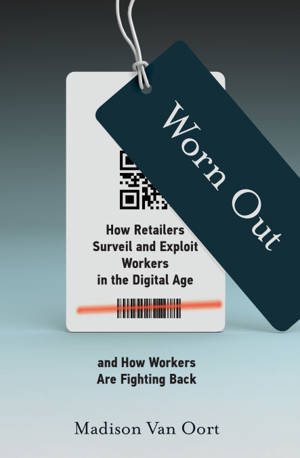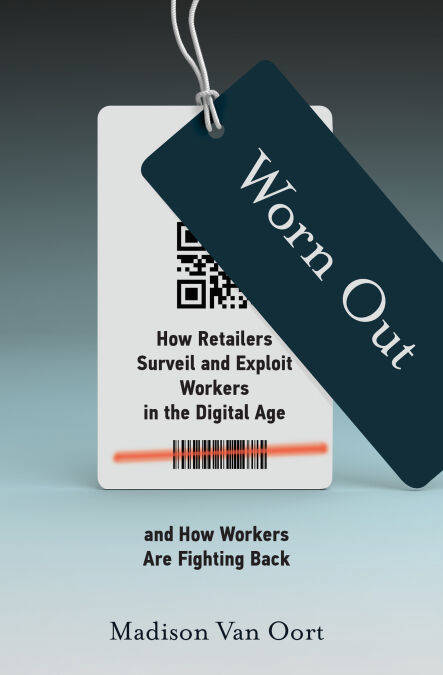
- Retrait gratuit dans votre magasin Club
- 7.000.000 titres dans notre catalogue
- Payer en toute sécurité
- Toujours un magasin près de chez vous
- Retrait gratuit dans votre magasin Club
- 7.000.0000 titres dans notre catalogue
- Payer en toute sécurité
- Toujours un magasin près de chez vous
Worn Out EBOOK
How Retailers Surveil and Exploit Workers in the Digital Age and How Workers Are Fighting Back
Madison Van Oort
29,56 €
+ 29 points
Description
An immersive, first-hand account of retail worker surveillance and resistance in the digital age.
Technology has sped up the world of retail clothing, rushing affordable, trendy garments to consumers and enriching multinational retail giants like Zara and H&M. But beneath the success of fast fashion, there is a grimmer story to be told—that of the people who do the actual producing and selling. Working undercover in two of the world’s largest fast fashion stores in New York City, Madison Van Oort observed firsthand how data and surveillance shape the lives of low-status workers in an industry in flux—and how these workers are fighting back. Worn Out provides an on-the-ground look at how technology helps create this just-in-time workforce, how feminized and racialized workers experience and respond to new forms of digital control, and how collective struggles for racial, gender, and economic justice in and around retail spaces inform these workers’ resistance.
Worn Out draws on interviews with dozens of front-line workers and labor activists, and on evidence gathered at corporate conferences, to expose the exploitative reality of retail labor in the digital age. Van Oort shows how digital tools lubricate the shift toward just-in-time retail by collecting real-time data on not only customer behavior but also worker performance and how these tools—including automated scheduling platforms, biometric timeclocks, and cashier metrics—increase these workers’ already heightened insecurity. One of the first ethnographies of this “thriving” industry, Van Oort’s book pulls open the curtain between production and consumption and reveals the real cost of fast fashion.
Technology has sped up the world of retail clothing, rushing affordable, trendy garments to consumers and enriching multinational retail giants like Zara and H&M. But beneath the success of fast fashion, there is a grimmer story to be told—that of the people who do the actual producing and selling. Working undercover in two of the world’s largest fast fashion stores in New York City, Madison Van Oort observed firsthand how data and surveillance shape the lives of low-status workers in an industry in flux—and how these workers are fighting back. Worn Out provides an on-the-ground look at how technology helps create this just-in-time workforce, how feminized and racialized workers experience and respond to new forms of digital control, and how collective struggles for racial, gender, and economic justice in and around retail spaces inform these workers’ resistance.
Worn Out draws on interviews with dozens of front-line workers and labor activists, and on evidence gathered at corporate conferences, to expose the exploitative reality of retail labor in the digital age. Van Oort shows how digital tools lubricate the shift toward just-in-time retail by collecting real-time data on not only customer behavior but also worker performance and how these tools—including automated scheduling platforms, biometric timeclocks, and cashier metrics—increase these workers’ already heightened insecurity. One of the first ethnographies of this “thriving” industry, Van Oort’s book pulls open the curtain between production and consumption and reveals the real cost of fast fashion.
Spécifications
Parties prenantes
- Auteur(s) :
- Editeur:
Contenu
- Nombre de pages :
- 192
- Langue:
- Anglais
- Collection :
Caractéristiques
- EAN:
- 9780262372763
- Date de parution :
- 06-03-23
- Format:
- Ebook
- Protection digitale:
- Adobe DRM
- Format numérique:
- ePub

Les avis
Nous publions uniquement les avis qui respectent les conditions requises. Consultez nos conditions pour les avis.






